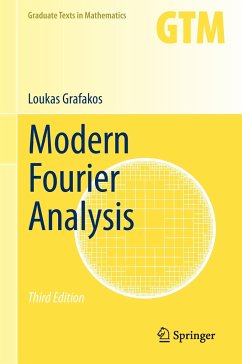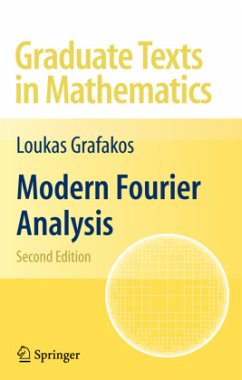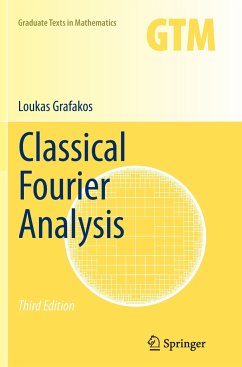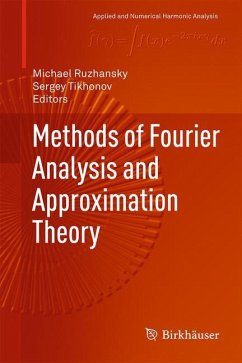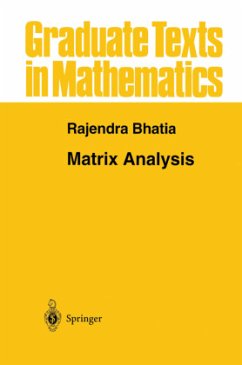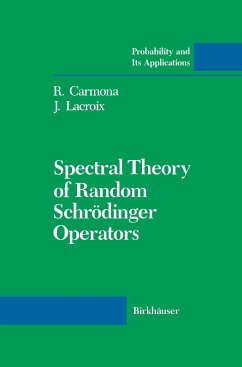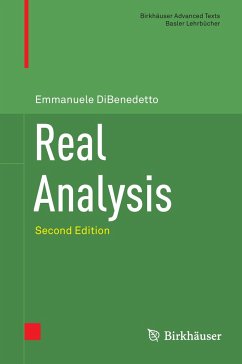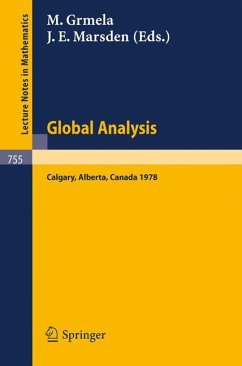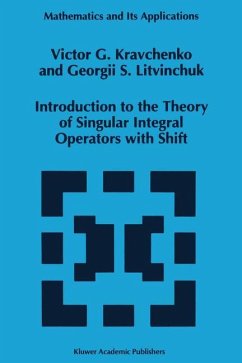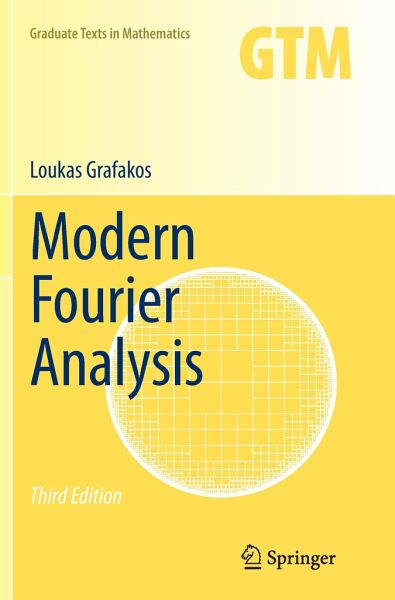
Modern Fourier Analysis
Versandkostenfrei!
Versandfertig in 6-10 Tagen
53,99 €
inkl. MwSt.
Weitere Ausgaben:

PAYBACK Punkte
27 °P sammeln!
This text is aimed at graduate students in mathematics and to interested researchers who wish to acquire an in depth understanding of Euclidean Harmonic analysis. The text covers modern topics and techniques in function spaces, atomic decompositions, singular integrals of nonconvolution type and the boundedness and convergence of Fourier series and integrals. The exposition and style are designed to stimulate further study and promote research. Historical information and references are included at the end of each chapter.This third edition includes a new chapter entitled "Multilinear Harmonic ...
This text is aimed at graduate students in mathematics and to interested researchers who wish to acquire an in depth understanding of Euclidean Harmonic analysis. The text covers modern topics and techniques in function spaces, atomic decompositions, singular integrals of nonconvolution type and the boundedness and convergence of Fourier series and integrals. The exposition and style are designed to stimulate further study and promote research. Historical information and references are included at the end of each chapter.
This third edition includes a new chapter entitled "Multilinear Harmonic Analysis" which focuses on topics related to multilinear operators and their applications. Sections 1.1 and 1.2 are also new in this edition. Numerous corrections have been made to the text from the previous editions and several improvements have been incorporated, such as the adoption of clear and elegant statements. A few more exercises have been added with relevant hints when necessary.
This third edition includes a new chapter entitled "Multilinear Harmonic Analysis" which focuses on topics related to multilinear operators and their applications. Sections 1.1 and 1.2 are also new in this edition. Numerous corrections have been made to the text from the previous editions and several improvements have been incorporated, such as the adoption of clear and elegant statements. A few more exercises have been added with relevant hints when necessary.



